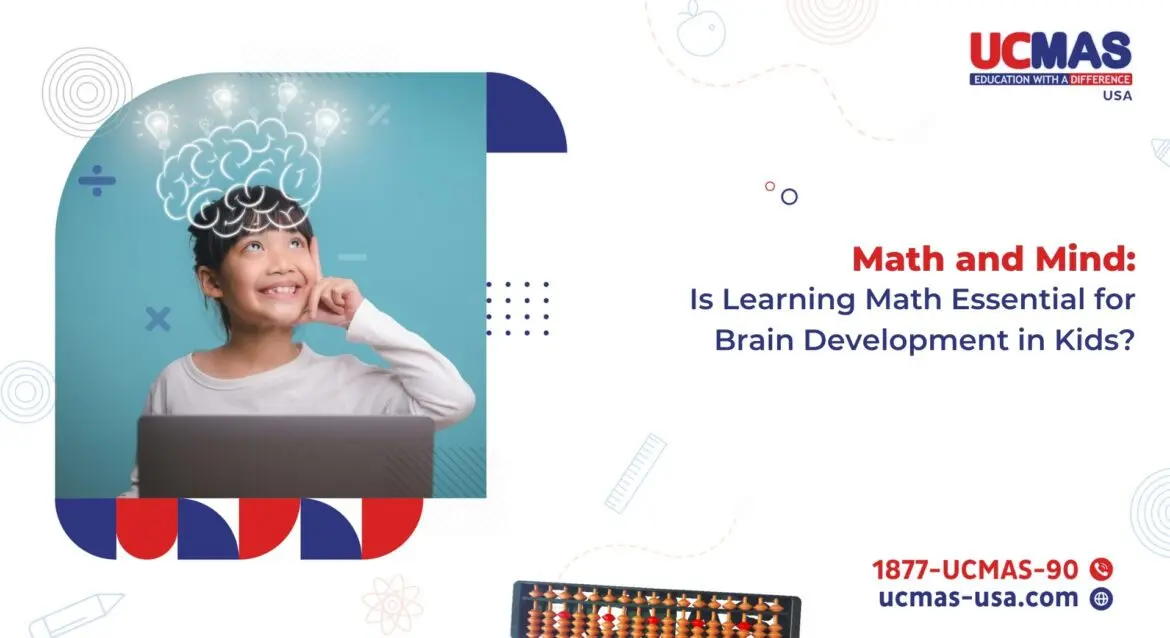Learning math isn’t just about crunching numbers and solving equations. It plays a critical role in developing cognitive skills that extend beyond the classroom. When students excel in math, they often find themselves doing well in other subjects too. But how exactly does math help in this broader context? Let’s explore the process of learning math and how it influences success in different academic areas.
The Process of Learning Math
Mathematics is a way of thinking—a method of approaching problems with logic, precision, and critical analysis. These skills are crucial not only in math class but in nearly every subject a student encounters.
When a student excels in math, they’re not just good with numbers; they develop a disciplined mind that can analyze, reason, and solve complex problems. These skills are transferable and can significantly enhance a student’s ability to succeed in other areas, from understanding scientific principles to interpreting literature.

Building a Strong Foundation
The journey starts with basic arithmetic, which is crucial for everyday tasks. Understanding the relationship between numbers, learning how to manipulate them, and developing number sense is the first step in this process.
Developing Problem-Solving Skills
As students move forward, they encounter more complex problems that require logical thinking and a step-by-step approach. This helps in building problem-solving skills, which are essential not just in math but in life.
For example, solving a math word problem using mental math worksheets involves understanding the problem, deciding on the operations needed, and then calculating the answer. This process enhances critical thinking and the ability to break down complex tasks into manageable steps.
Mental Math
An important aspect of learning math is mental math, where students learn to perform calculations mentally without the aid of calculators or paper. Mental math sharpens the mind, improves concentration, and enhances memory.
The Role of Math in Overall Student Development
Math is more than just a subject; it’s a tool that sharpens the mind and prepares students to excel in various academic disciplines. Here’s how excelling in math can help students ace other subjects.

Science
Math and science are closely related. Many scientific concepts, from physics to chemistry, require a solid understanding of math. For example, in physics, equations are used to describe laws of motion, calculate force, or determine the speed of an object. A student who excels in math will find it easier to understand and apply these equations, making the study of science more accessible and enjoyable.
Economics and Business Studies
Subjects like economics and business rely heavily on math. Whether it’s calculating profit margins, understanding interest rates, or analyzing market trends, math is at the core of these disciplines. A strong foundation in math allows students to grasp these concepts quickly and apply them effectively, leading to better performance in these subjects.
Computer Science
Coding, which is a major component of computer science, involves logic, patterns, and sequences—all of which are rooted in mathematical principles. A student proficient in math will find it easier to learn programming languages, understand algorithms, and solve coding problems.
Art and Music
Even creative subjects like art and music have mathematical elements. For instance, music theory involves understanding rhythms, scales, and intervals, all of which require mathematical thinking. Similarly, concepts like symmetry, proportions, and geometry are integral to art. Students who are good at math often have an eye for patterns, which helps them in these creative fields.
Language and Literature
Although it might seem unrelated, math helps in the development of logical thinking and pattern recognition, which are valuable in language studies. For example, understanding the structure of a sentence or identifying the theme of a story involves recognizing patterns and sequences, much like solving a math problem. Additionally, the analytical skills gained through math can aid in the critical analysis of texts.
Excelling in math is not just about getting good grades in one subject; it’s about overall skill development that benefits students across all areas of study.
Math and the Hype Around Afterschool Programs
Afterschool programs play a crucial role in helping students excel in math by providing extra practice and personalized support. These programs create a fun and engaging environment where students can explore math concepts beyond the classroom.
Hands-on activities like math worksheets and tailored lessons help students build confidence and strengthen their problem-solving skills. Plus, the interactive nature of these programs keeps learning exciting, making math less intimidating.
By enrolling in afterschool math programs, students not only improve their math abilities but also develop a positive attitude toward learning, setting them up for success in all areas of their education.

Math programs for kids like UCMAS play a crucial role in the overall development of students’ brains. UCMAS focuses on mental math and the development of cognitive skills through the use of the abacus and other innovative techniques. It offers in-person and online abacus classes.
- Our programs are designed to improve concentration and focus, which are essential for academic success.
- The UCMAS abacus math program includes activities such as visualizing numbers on an abacus and performing calculations without using a pen and paper. This enhances memory and retention. Mental math not only helps in math but also in subjects that require the memorization of facts, dates, or formulas.
- By making math fun and engaging, UCMAS helps students develop a positive attitude toward learning. This enthusiasm often spills over into other subjects, leading to a more well-rounded academic experience.
- Success in math through programs like UCMAS boosts students’ confidence, making them more willing to take on challenges in other subjects. This self-assurance is a key ingredient in academic success.
The UCMAS afterschool programs enhance the kids’ learning experience by focusing on cognitive development, ensuring that students have the tools they need to excel in all areas of their education. Start the journey toward your child’s academic success! Enroll now!


